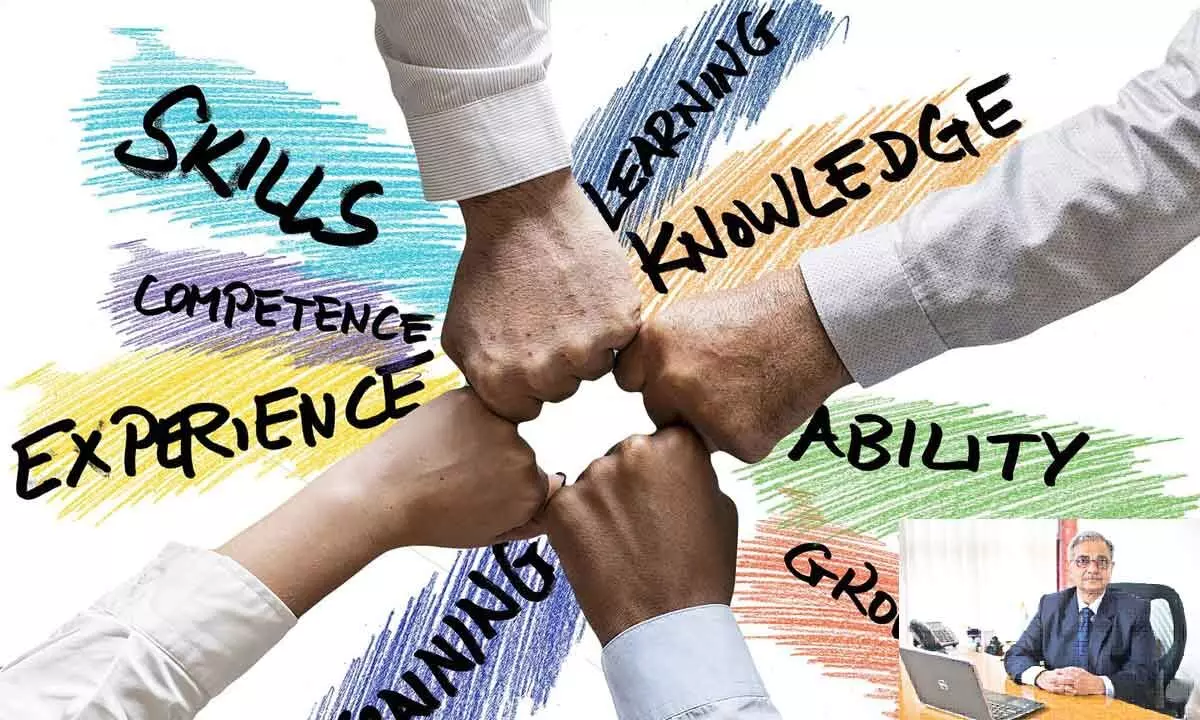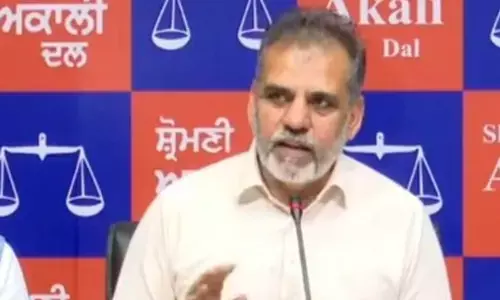Creating high impact with effective communication skills

A combination of technical and communication skills is must for professionals to succeed in modern workplaces.
According to a GMAC Corporate Recruiters' Survey Report, employers rank communication skills as the most important recruitment criteria.
A combination of technical and communication skills is must for professionals to succeed in modern workplaces. With the increasing adoption of remote working, communication channels have increased, and so has the possibility of ambiguity. So, it's imperative that organizations foster an open and collaborative culture, encouraging employees to communicate clearly. Be it internal communication or customer interactions, your employees must be able to objectively express their feelings. Workplaces become vibrant, productive, and happy when people communicate openly, clearly, and empathically.
Let's look at various types of workplace communications:
♦ Customer interactions: Employees in customer-facing roles must receive soft skills and communications training. Transparent communication based on a clear understanding of customers'requirements goes a long way in establishing strong connection and rapport
♦ Peer interactions: Employees often have to handle critical conversations where fixed agendas need to be discussed with a larger group in a formal setup. This could be to define a product roadmap or design a new campaign. Basically, collaboration with peers across departments is an integral part of our daily work routine. To make these interactions fruitful, we must foster a friendly and cordial work environment.
♦ Group meetings: There are settings where employees have to lead a group of people, like a marketing team or a project team, to achieve intended business objectives. These communications require leaders to encourage and motivate teams to move forward with confidence
Whether a board meeting, round-table conference, group discussion, regular team meeting, or chit-chat over a cup of tea, a good communicator can craft persuasive messages, facilitate dialogue, and make powerful presentations.
Here's how good communicators build a positive work culture in the organisation:
♦ Building empathy: Empathy is achieved in organizations when people communicate openly and with respect for each other. A candidate with good communication skills can build trust and strengthen relationships, fostering collaboration while understanding others' opinions and viewpoints.
♦ Enhancing productivity: The candidate should be able to interact, work, relate, and motivate their peer group to drive better results. Communication skills help them understand the given instructions properly and act accordingly.
♦ Articulating requirements: The candidate with good communication skills can analyze and clearly articulate customers' requirements, expectations, and challenges.
♦ Strengthening brand image: A good communicator can quickly adapt to clients'styles and communicate with them in the appropriate medium. This eventually strengthens the brand image of your organization.
Assessing candidates' communication skills while hiring is must
During the hiring process, communication assessment helps you understand an individual's language proficiency and ability to communicatein multiple professional andsocial settings. A holistic evaluation of communication skills is broadly divided into four categories:
♦ Writing skills
Irrespective of roles, many recruiters assess the writing skills of the candidates by giving them situation-based questions and asking them to explain them in their own words. The evaluation is done based on the defined set of guidelines. Various departments, including sales, marketing, and customer support place special emphasis on the candidate's professional expertise in writing skills
♦ Reading skills
Reading skills demonstrate a candidate's ability to accurately interpret and analyze written information. It helps recruiters get an overall picture of a candidate's comprehension ability, critical thinking skills, focus, attention span, and general aptitude
♦ Listening skills
Communication is as much about listening as it's about speaking. An efficient listener can register more information and minimize misunderstandings, enabling all stakeholders to work towards the common objective with minimal chance of rework. Listening also involves asking the right questions to understand things fully which further helps in paraphrasing content wherever required
♦ Oratory skills
Proficiency in speaking the required language is at the top when assessing a candidate's communication skills. It helps determine if the candidate has the ability to communicate in that particular language properly. It proves that the candidates can navigate complex terminologies and linguistic nuances when required
Summing up
Every organisation is unique in terms of their defined goals and objectives. So, depending on the nature of your domain, your communication requirements can be different. The trick lies in identifying the right set of communication assessment and training tools to ensure you hire the right talent and ensure the capability enhancement of your existing resources.
(The author is the Senior Vice President, HR Operations, Newgen Software)











